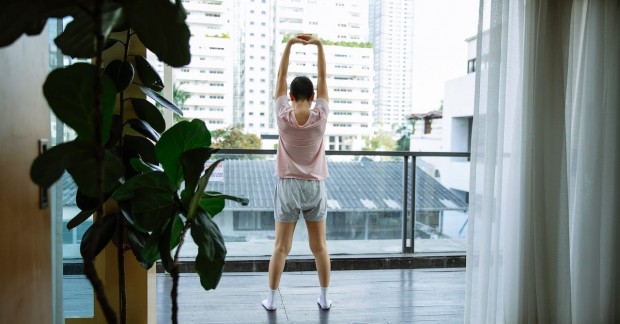Physical Wellness
Master Your Recovery: Top 5 Essentials for Physical Therapy

Physical therapy is a demanding but gratifying practice that can help with injury recovery, mobility enhancement, and chronic pain management.
However, it's not always simple to predict what lies ahead or to know how to prepare. For this reason, whether receiving physical treatment at home, in a clinic, or in a hospital, we've put together a list of necessities. By making use of these tools, you can make sure that your sessions are fruitful, that you are motivated and at ease, and that you avoid any issues.
You may be wondering what you need to maximize your sessions and reach your objectives, or what the necessities of physical therapy are.
The following five items are essential for each patient receiving physical therapy:
1. A Back Brace Posture Corrector
If you experience back pain, scoliosis, bad posture, or even physical therapy, you are aware of how challenging it may be to find a solution that suits your needs.
Now, though, don't give up! You can reduce your pain, straighten your posture, and gain back your confidence with the help of a product. The Fit Geno Back Brace Posture Corrector is what it's called, and it's meant to assist you in achieving a comfortable and healthy spine alignment.
You wear a device called the Fit Geno Back Brace Posture Corrector around your upper body, from your shoulders to your waist. You can change the fit and amount of support by adjusting the straps. Additionally, it features a metal plate in the back for stability and to keep your spine from bowing or sagging.
In addition to being a product, Fit Geno's Back Brace Posture Corrector is a well-known physical therapy aid that can assist you in getting long-lasting benefits. You may teach your muscles and nerves to naturally assume good posture by wearing it regularly. To maximize the effects, you can also combine it with other therapies like massages or workouts.
2. Rehab Specialist
Finding a licensed physical therapist who can evaluate your illness, provide a customized treatment plan, and walk you through the exercises and modalities is the most crucial step in physical therapy.
A good physical therapist should be licensed to practice, have a degree in physical therapy, and have treated patients similar to yours. To find a physical therapist in your area, you might look online or contact your doctor for a recommendation.
3. Relaxed and Efficient Place
Physical therapy often involves doing exercises and movements that require space and equipment. You may need to use a mat, a table, a chair, a ball, a band, or other tools to perform your exercises.
You may also need to use machines or devices that provide heat, cold, electrical stimulation, ultrasound, or traction. You should have access to a comfortable and functional space where you can do your physical therapy sessions, either at home or at a clinic.
4. 'Can-Do' Spirit
It might be difficult to receive physical treatment, particularly if you are experiencing pain, stiffness, or weakness. It can also be annoying to experience difficulties or setbacks, as well as to not see results right away.
For this reason, when engaging in physical treatment, you must adopt a growth mindset and an optimistic outlook. You should enjoy your accomplishments, have faith in your capacity to grow, and conquer any challenges. You ought to be receptive to criticism, eager to pick up new skills, and flexible.
5. Supportive Circle
Although physical therapy can be labor-intensive, you don't have to do it by yourself. Having a network of people who can inspire, uplift, and assist you on your journey might be beneficial.
Your network of support may consist of your loved ones, close friends, coworkers, or fellow physical therapy patients who understand your struggles and aspirations. In order to share advice, anecdotes, and information, you can also participate in online forums or groups.
Takeaways
Physical therapy is a challenging yet rewarding process for improving mobility, function, and quality of life. It requires more than just attending appointments and following the therapist's instructions. Essentials for physical therapy include staying motivated, focused, and prepared for sessions. These qualities help overcome challenges and setbacks, making the most of the therapy experience and achieving desired outcomes.
Also, it is crucial to note that physical therapy is not a quick fix or magic solution, but a journey that requires active participation, commitment, and cooperation. With the right knowledge, attitude, and support, physical therapy can be successful and enjoyable. Don't hesitate to ask your therapist for more information or guidance on what you need when undergoing physical therapy. They are there to help you reach your goals and get back on track.
* This is a contributed article and this content does not necessarily represent the views of counselheal.com








